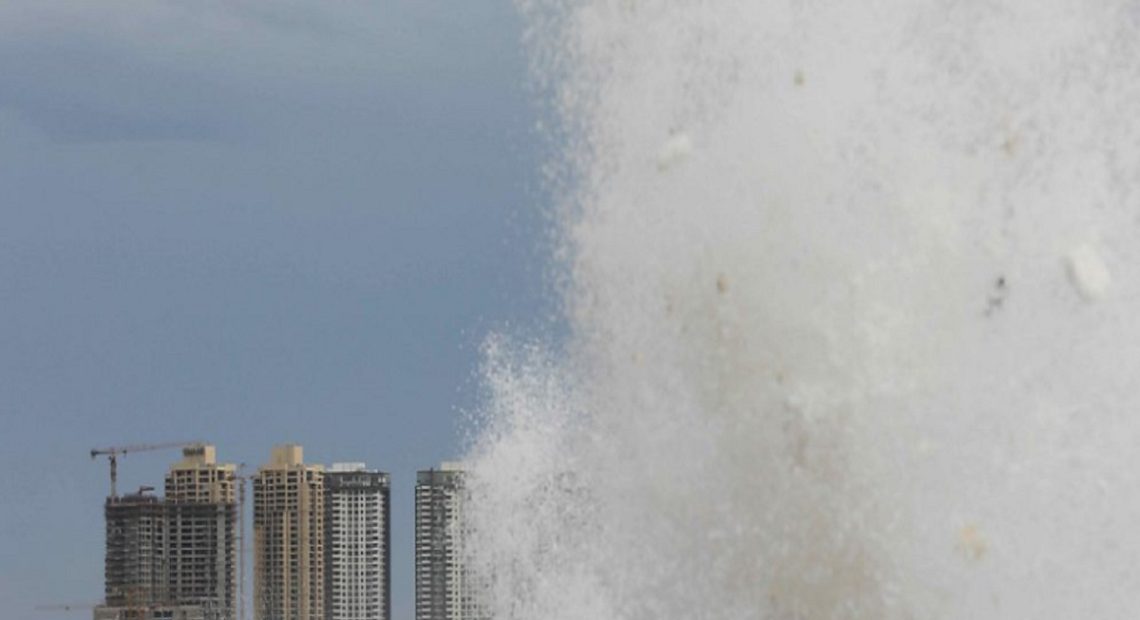

More than 170,000 people in India and Pakistan have been evacuated from the path of a fierce cyclone before its expected landfall on Thursday.
Forecasters have warned that Cyclone Biparjoy which means “disaster” in Bengali could destroy homes and crops in its path.
Biparjoy is expected to first hit India’s Gujarat state on Thursday evening local time.
Visuals from the state’s coast showed heavy rains, high tides and rough seas.
The cyclone is expected to make landfall near the Jakhau port between Mandvi in Gujarat and Keti Bandar in Pakistan’s Sindh province.
In its latest update, India’s weather department said that the landfall process “would commence from today evening [local time] and continue till midnight”.
Pakistan’s disaster management agency warned of storm surges as high as 3-4m along the coastline from Karachi to India’s Gujarat.
Gujarat’s Relief Commissioner Alok Pandey said the cyclone’s speed had reduced but its winds speed were expected to be around 110-12 km/h at the time of landfall, which he called “very dangerous”.
India’s weather office warned that the cyclone will damage roads, thatched houses and uproot electricity towers and trees along Gujarat’s coast.
The State’s Health Minister, Rushikesh Patel, asked people to stay where they were and avoid travelling. “Our aim is to ensure zero casualties,” he said.
At least seven deaths were reported amid heavy rains in India this week.
The victims included two children crushed by a collapsing wall, and a woman hit by a falling tree while riding a motorbike, AFP news agency reported.
In Pakistan, the storm is expected to strike the coast of Sindh province. Authorities have already evacuated 81,000 people from the south-eastern coast and set up 75 relief camps at schools.
Pakistan’s climate change Minister Sherry Rehman said that Karachi, the province’s largest city with a population of more than 20 million, was not under immediate threat but emergency measures were being taken.
Meteorologists warned that high tides could inundate low-lying areas along the coasts.
BBC/Adebukola Aluko
Subscribe to our Telegram and YouTube Channels also join our Whatsapp Update Group